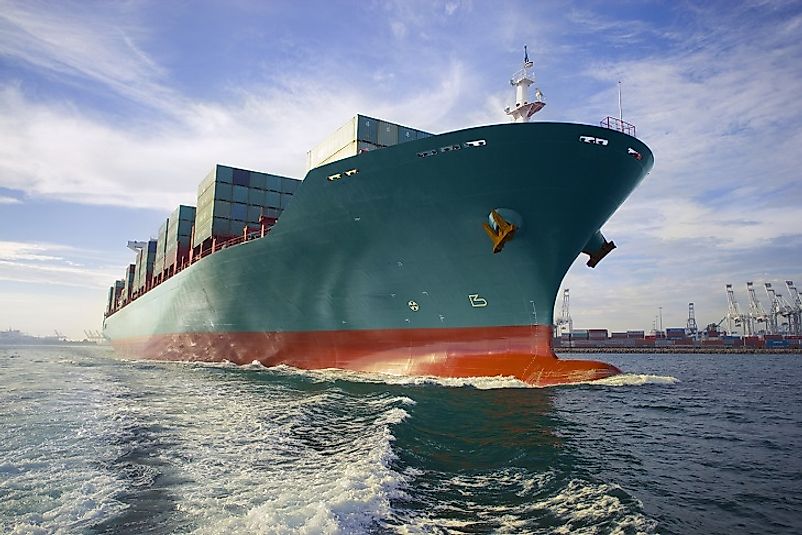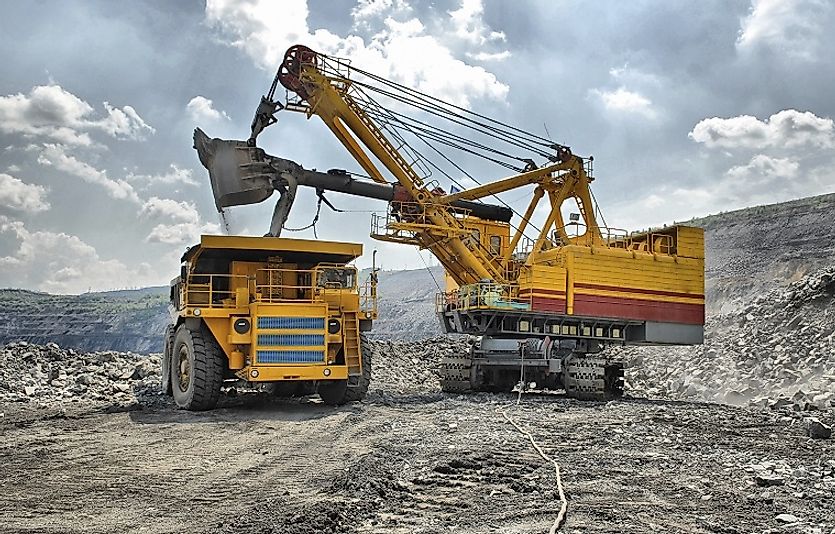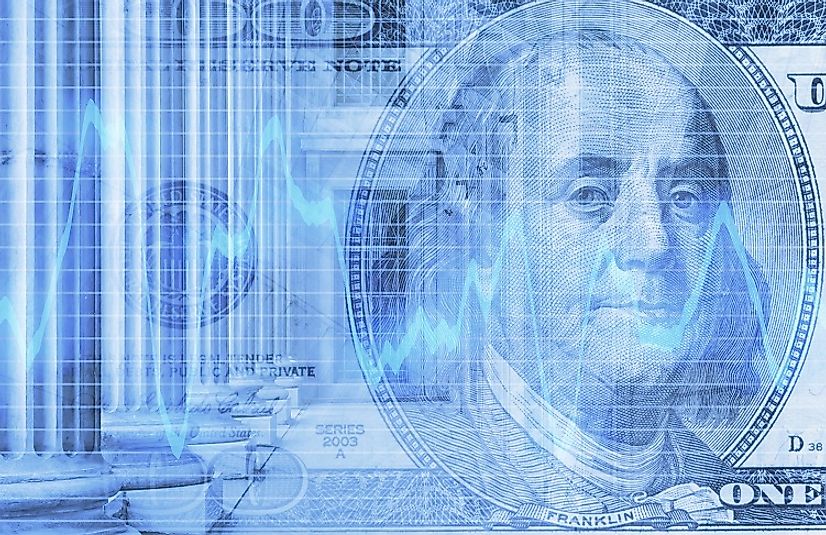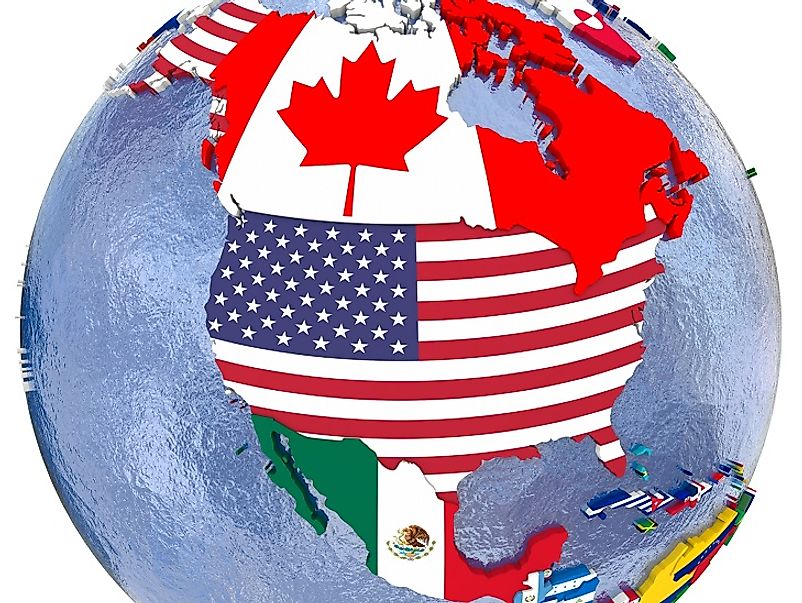Why The United States Economy Will Remain The Strongest In The World

An Op-ed by Ouissam Youssef, CEO and co-founder of Valsef Group, the parent company of WorldAtlas.com. Ouissam is a serial technology entrepreneur and a seasoned businessman with years of experience and several successful ventures under his belt. Learn more about Ouissam Youssef.
10. A Track Record as a Global Economic Presence

A number of factors have driven the US economy to the top of the global markets, and allowed it to stay there. Most countries in the world see America as a market opportunities country that has consistently proven to be a strong partner in business and industry. In addition, deserving countries have been afforded partnership status in the North American Free Trade Agreement (NAFTA). Many other international economic organizations where the U.S. is a member is enhanced with its participation that allows for the free market economy to flourish. Doing business with the U.S. almost always provides countries some access to global value chains. The United States also imports more products annually to the tune of $239.2 billion than it exports which is considerably lower at $187.8 billion.
9. U.S. Arable Land Resources

One of the contributing factors that makes the U.S. economy strong is a wealth of arable agricultural lands. There are about 470 million acres of U.S. land that are under cultivation. These resources produce food that accounts for 99.5% of America's food sources. It also contributes to America's economy, with almost $40 billion annually coming from its food exports around the world. The U.S. exports more agricultural products than it imports, and this helps in maintaining prices and revenues. Increasing food imports however is seen as beneficial as it gives a wider consumer choice and helps in a sure supply of seasonal produce. Although this trend has created a trade deficit in agricultural products as a result of the surplus, it is considered as a positive sign in international trade for the United States.
8. Access to Large Aquifers

Water is a major resource that affects all aspects of the American economy, it influence ranging from products that directly contain water to products that need water for processing. The range of water-based products in the U.S. are too numerous to name, especially in manufacturing. Agriculture and power generation gets the major share at 80% with 31% going to irrigation and 49% to power generation. Fortunately there are major aquifers across the United states that offset rainfall droughts. These aquifers almost always hold abundant water due to huge water recharge supplied by nearby lakes and rivers. The Ogallala Aquifer is located under eight U.S. states that holds enormous water from glacier melts. The Floridan Aquifer is under four U.S. states covering about 100,000 square miles. Other important U.S. aquifers include Edwards Aquifer, Snake River Aquifer, Kirkwood-Cohansey Aquifer, Mahomet Aquifer, San Diego Formation, San Diego Formation, Rathdrum Prairie Aquifer, and numerous more.
7. Timber and Mineral Resources

Timber and mineral resources are crucial to the economy of the U.S. The South Atlantic coastal states, the Pacific Northwest, and the Gulf states in the United States all share abundant forests that is the source for the timber industry. These lumber are exported for construction or in the form of furniture and other finished products around the world. Paper, fiberboard, and cardboard make up other exports. Another huge economic factor is mineral mining that produces diamonds, gold, silver, nickel (used in steel-making), bauxite (for aluminum processing), iron and copper (for construction and electronics), and coal (for energy). These activities result in massive hiring and earnings of billions of dollars for the U.S. economy. Oil and gas are also drilled in the U.S., though these are mainly diverted towards domestic use. Dollar savings in this regard are significant when looking at American exports compared to imports, which is a hedge against volatility of prices in the world market.
6. Control of the World's Reserve Currency

Control of the world's reserve currency has allowed the United States to enjoy lower interest rates when borrowing. It also allows the same status for its citizens. Other advantages include the delay of economic impacts due to trade deficits, and that a looming currency crisis could be diverted. The power of the U.S. Dollar as the world's currency reserve does not end there. It also further gives the American government the choice to impose fines and unilateral sanctions for actions done between other nations. The status of the U.S. Dollar as the world's currency reserve remains stable today due to the strength and attractiveness of the United States Treasury security. However there has been speculations in the past that if the U.S. Dollar continues to slide, the Euro or even the Chinese Yuan might replace it as the world's currency reserve. This is highly doubtful, however, as the Euro use as reserve currency has dropped to 23.9% in 2013. The last decade has also shown that two-thirds of the allocated foreign exchange reserves in the world are kept in U.S. Dollars.
5. US Strategic Petroleum Reserve

The petroleum supply in the United States was curtailed by Arab countries during the 1973-1974 oil embargo. In 1975, the U.S. government created the US Strategic Petroleum Reserve under the Department of Energy as a hedge against future oil embargoes. The storage facilities are in the Gulf of Mexico where four locations have deep caverns about 1,000 meters below the ground, and filled with a total of around 695.1 million barrels as of February 12th, 2016. The petroleum reserve is crude petroleum, and not yet refined into diesel, gasoline, or kerosene. However, a 2 million barrel reserve of refined petroleum fuels is located in New Jersey, Rhode Island, and Connecticut. There are future plans to build more underground caverns to offset any more major oil supply disruptions or reduce high oil prices. The current reserve has a target of 1 billion barrels, and even at present capacity is the world's biggest stockpile of petrochemicals and fuel resources.
4. The American Entrepreneurial Spirit

The American Entrepreneurial Spirit began in Colonial America when the original settlers from England brought with them livestock and seeds to propagate in the New World. This same entrepreneurial spirit today has allowed American business to proliferate internationally and create jobs and help economies worldwide, which also benefits American businesses as the initiator. Silicon Valley in California is an excellent example that has successfully changed the world today with its new innovations in computer science and communication tools. It has allowed rapid progress in these areas in a few decades that was impossible to conceive at the turn of the 20th Century. Not only has America benefited, but many other countries that have followed the same course have also reaped success. This has continued to support the U.S. economy even in times when other areas have struggled to keep pace.
3. A 'Never Give Up' Attitude

A 'Never Give Up' Attitude is another great American trait. This American characteristic is evident in many American leaders in the past as in the present. Abraham Lincoln is an excellent example of that trait. Lincoln spent half of his childhood years almost an orphan having lost his mother, brother, and sister to milk poisoning. As a young man, he lost a job and suffered two failures in business. He also lost the election eight times but he never gave up until he became the 16th president of the United States. Napoleon Hill and Dale Carnegie, both American inspirational writers, who each have over 25 million books sold, are believers in the American 'Never Give Up' Attitude. Modern entrepreneurs such as Bill Gates and Steve Jobs also started small and failed but through persistence developed their own companies. Their companies are just two of mega-corporate companies that have continually made the American economy stronger.
2. Capital Financing

Capital Financing is money given to a start-up business through lenders and equity holders. This money becomes the operating capital for the start-up company. The lenders get their return of investment through dividends, stock appreciation, and interest. In the United States, private equity investment skyrocketed in the years between World War 2 and the Vietnam War. The American Research and Development Corporation and the J.H. Whitney & Company were the first two venture capital firms to have produced huge returns on their investments during this time. The venture capital industry soon took off with the Small Business Investment Act of 1958 giving small businesses capital. The years 1959 to 1981 were lucrative years, as capital funding were focused on medical, electronic, and data-processing in Silicon Valley. This made it possible for today's American mega-companies in the telecommunications, hardware, and software sectors, such as Apple, Microsoft, Twitter, Yahoo, and Facebook, to feature in the list of premier companies on the tech-heavy NASDAQ.
1. Geopolitical Dominance as Economic Leverage

The concept of geopolitical dominance was first pinpointed by such geostrategists as Mahan, Reich, Lea, and Mackinder. Geopolitics is the analysis of the relation between human and physical geography towards international politics and therefore international relations between countries or states. The idea of geopolitical dominance as economic leverage may have become a concern during Kissinger and Brzezinski's tenure as security advisers to U.S. Presidents. The United States remains a leader in geopolitics, with its armed forces strategically located in important points across the globe. Its economic influence has continued to affect world markets although the past twenty years were volatile years as world politics and events continually affected financial markets. The United States has vast forests for timber, large lakes and rivers that guarantees its aquifers enough water reserves, petroleum and gas reserves, mineral resources, and vast agricultural land. These factors should ensure its dominant position geopolitically, and as a leader in international financial markets.











